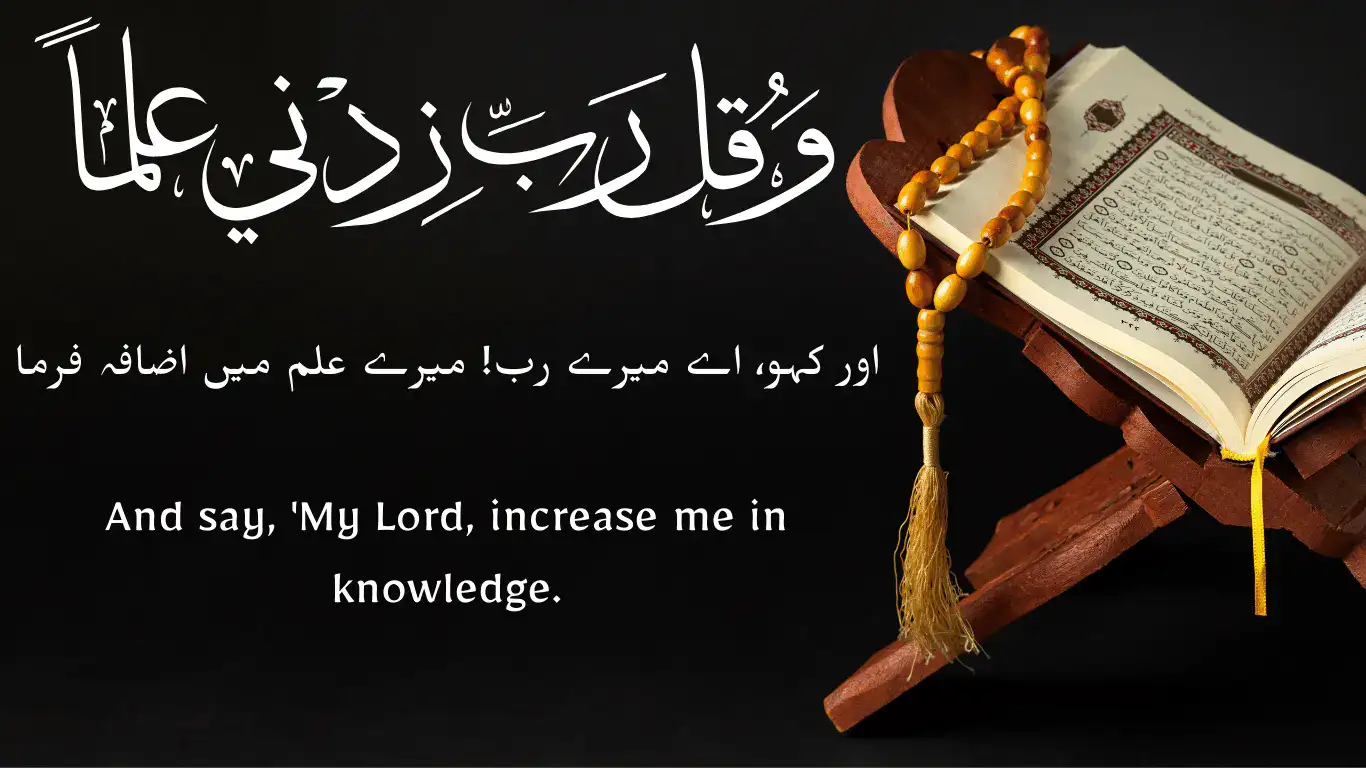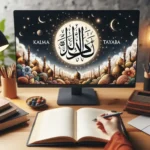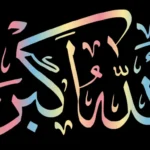Rabbi Zidni Ilma is a short yet powerful dua from the Quran, asking Allah for an increase in knowledge. This dua is particularly cherished by Muslims who seek to gain wisdom, learn more about their faith, or excel in their educational pursuits. The phrase translates to My Lord, increase me in knowledge, and serves as a constant reminder of the importance of lifelong learning and humility in the quest for understanding.
The Importance of Knowledge in Islam
In Islam, knowledge holds a significant place. The very first revelation to the Prophet Muhammad (PBUH) was “Iqra,” which means “Read.” This highlights the value of learning and education in the Islamic tradition. By reciting “Rabbi Zidni Ilma,” Muslims express their desire to grow intellectually and spiritually, acknowledging that all knowledge comes from Allah.
Understanding “رَّبِّ زِدْنِي عِلْمًا” in Depth
Arabic Text and Translation
- Arabic:
- ~رَّبِّ زِدْنِي عِلْمًا~
- English Translation:
- My Lord, increase me in knowledge.
- Urdu Translation:
- “اے میرے رب! میرے علم میں اضافہ فرما۔”
This dua is derived from Surah Taha (20:114) in the Quran, emphasizing the importance of seeking knowledge with sincerity and humility.
| Naat MP3 Download | Free Islamic Naat’s |
| Rizq Ki Dua: Powerful Prayers for Abundance |
| Kabristan Mein Dakhil Hone Ki Dua |
| Naat MP3 Download | Free Islamic Naat’s |
Benefits of Reciting “Rabbi Zidni Ilma”
- Encourages Lifelong Learning: This dua is a powerful reminder to continually seek knowledge, whether religious or worldly.
- Enhances Memory and Understanding: Regular recitation is believed to aid in memory retention and improve understanding, making it popular among students.
- Spiritual Growth: By asking for knowledge, one grows closer to Allah, as understanding His creation and His commands leads to a stronger faith.
- Promotes Humility: The act of asking Allah to increase knowledge reflects humility and recognition of human limitations.
How to Incorporate “رَّبِّ زِدْنِي عِلْمًا” in Daily Life
To make the most of this dua, incorporate it into your daily routine. Recite it before starting your studies, during times of difficulty in learning, or whenever you feel the need for greater understanding. Teaching this dua to children can also instill in them the value of education and the habit of seeking divine assistance in their learning journeys.
The Connection Between Knowledge and Success
In both religious and secular contexts, knowledge is often linked with success. By reciting “Rabbi Zidni Ilma,” you align yourself with the values of diligence, curiosity, and a desire for self-improvement. This not only aids personal growth but also contributes to the betterment of society, as knowledgeable individuals are better equipped to make positive contributions to their communities.
Conclusion
“Rabbi Zidni Ilma” is more than just a dua; it is a philosophy that encourages Muslims to pursue knowledge throughout their lives. By regularly asking Allah for an increase in knowledge, you open yourself up to endless possibilities for personal and spiritual development. Whether you are a student, a professional, or someone simply eager to learn more about the world, this dua serves as a powerful tool to guide your journey.
FAQs:
The dua “Rabbi Zidni Ilma,” meaning “My Lord, increase me in knowledge,” is significant because it reflects a Muslim’s desire to seek continuous learning and understanding. It emphasizes the importance of knowledge in Islam and serves as a reminder to remain humble and constantly strive for intellectual and spiritual growth.
You can recite “رَّبِّ زِدْنِي عِلْمًا” at any time, but it is particularly beneficial to say it before studying, before important exams, or whenever you seek clarity and understanding. Incorporating this dua into your daily routine can help reinforce the habit of seeking Allah’s guidance in your pursuit of knowledge.
For students, “رَّبِّ زِدْنِي عِلْمًا” is a powerful tool that encourages the pursuit of knowledge with Allah’s guidance. Reciting this dua can enhance memory, boost concentration, and help overcome learning difficulties, making it an essential part of a student’s spiritual toolkit.




